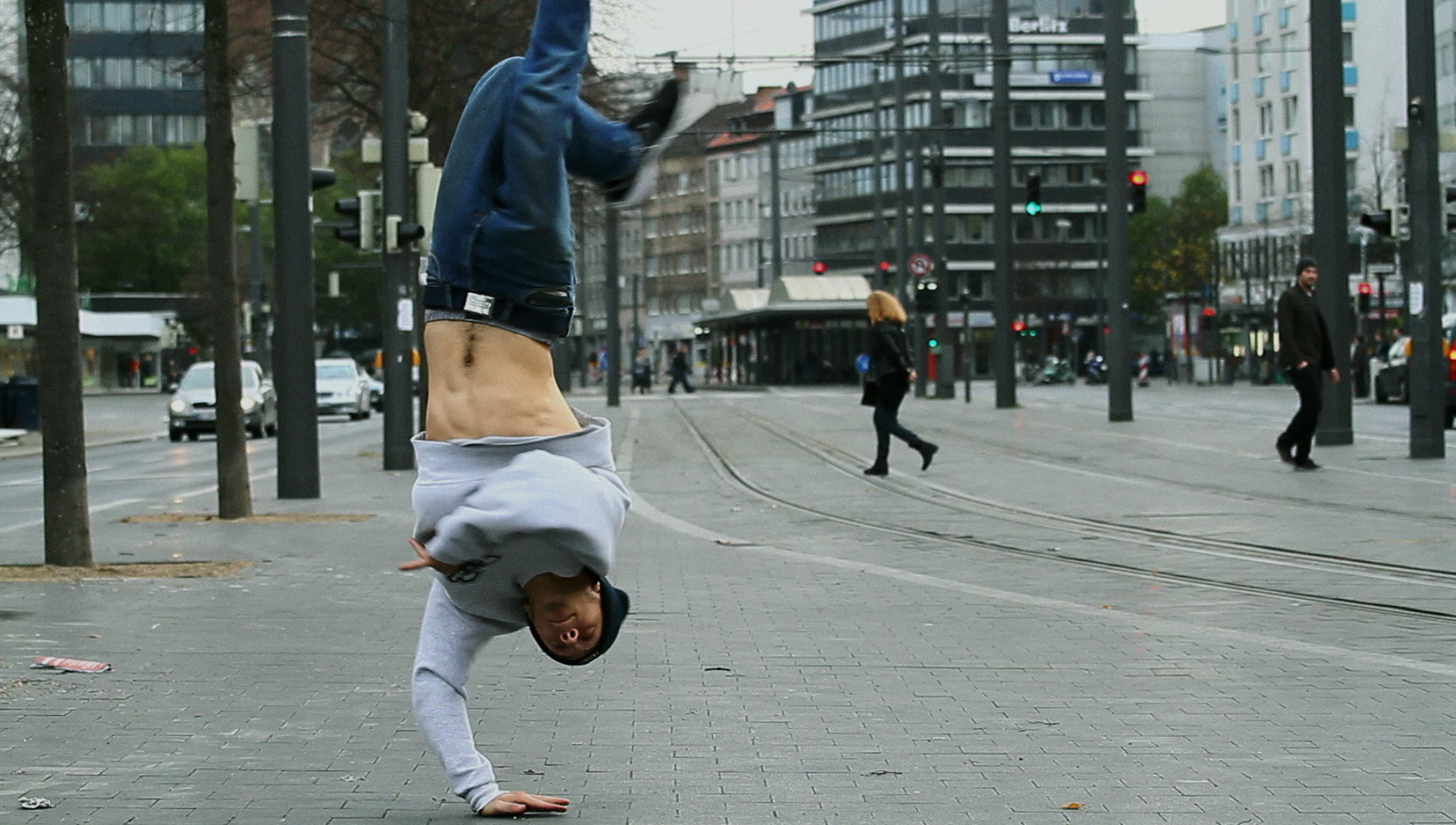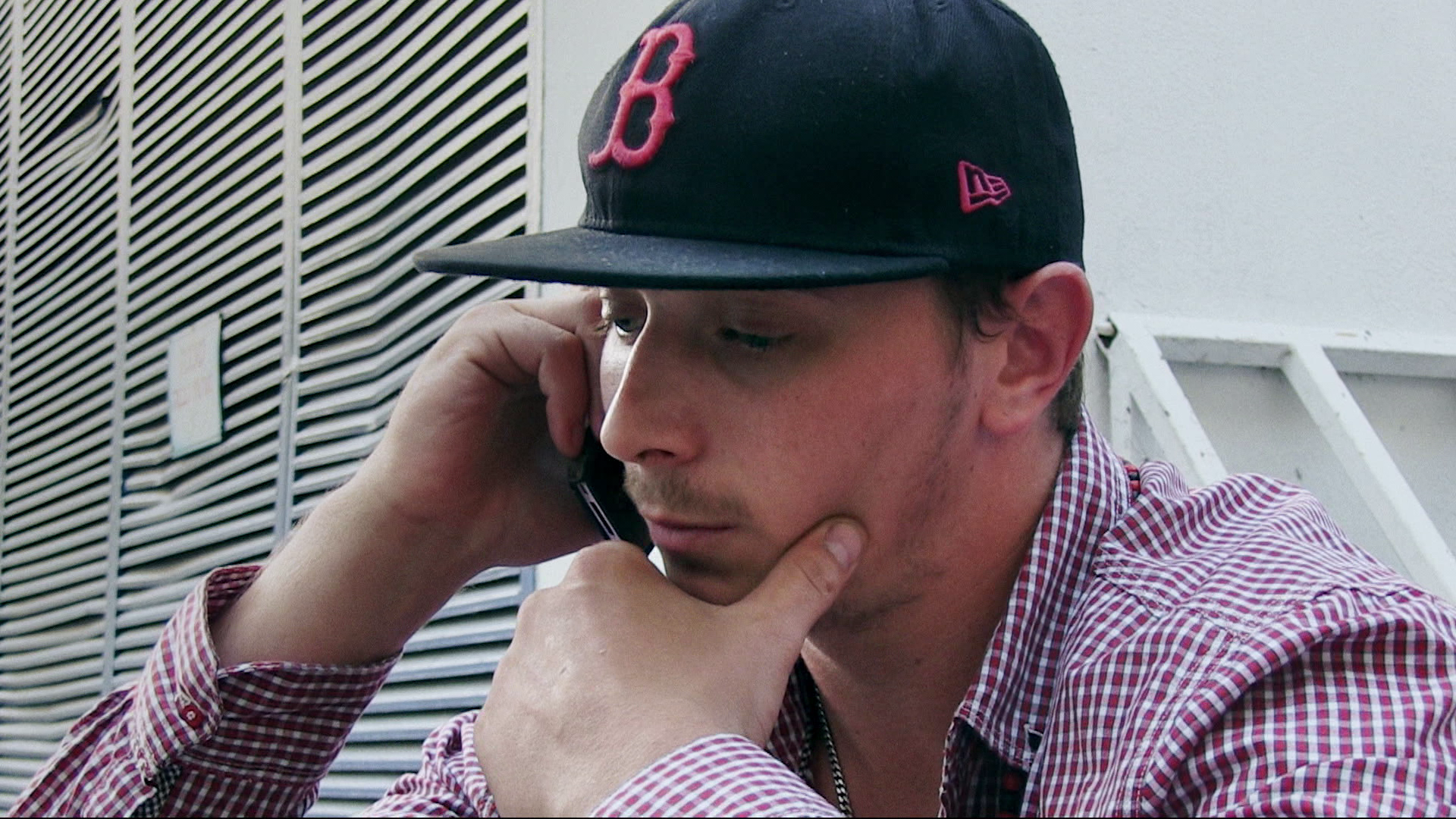
Yasha Kravec, aka "Potter" is a multiple breakdance battle champion. He is participating in various breakdance contests, and was at BIDF to represent the movie Babylon Dreamers along with the director and some fellow dancers. He is one of the main characters of the film, and member of the hip hop dance crew Unstopabullz seen in Babylon Dreamers.
Back in the 2000s, at the age of twelve, he got familiar with breakdance subculture, which had just been sneaking into Israel at that time. "Mixer [another protagonist of Babylon Dreamers] showed me a videotape of a 90s BITY championship won by the Suicidal Lifestyles, a Hungarian crew." Jamming together as a gang of friends, Unstopabullz teamed up in its final form in 2007. "We were originally two different crews: a part of us from Ashdod in the South, the other one is from Nazareth, in the North. But when we got together no one could stop us" - explains Potter their crew name.

photo: Babylon dreamers
Babylon Dreamers follows them on their way preparing for the BOTY of 2014, giving insight into some of the characters’ personal lives. There is Mixer, 27, whose wife is expecting their second child, meanwhile he has to take care of his younger siblings as their mother is struggling with alcoholism. Potter's situation is not easier either: at the age of 21, he needs to find the balance between military service, dance rehearsals and caring for his mother, who is mentally ill. "There were eleven people in the crew, they had different lives and stories. But Mixer and Potter represented the problems I wanted to show " - said the director.
Second-level citizens
Roman Shumunov has known Unstopabullz members for a long time, some of them have even played in his short film No One But Us in 2011. With his first documentary, Shumunov aimed to improve the status of his community.
Who are the Israeli Russians? In fact, this term covers a multinational stratum including everyone coming from the FSU, no matter from which part. Everyone whose mother tongue is Russian is considered Russian. "I was born in Belarus, but my parents left for Israel around 1992. In spite of this, it’s like I was born in Israel. I grew up here" - says Potter. Their number is over 1 million and around 320 000 of them are non-matrilineal descent Jews or/and Orthodox Christians having Jewish roots. (1)
FSU immigrants often face difficulties with bureaucracy and integration. A vast number of them get to the periphery because of their disadvantaged position in the labour market or their pension, which is usually not higher than 500$. (2)
The right to marriage and to have a funeral in Israel are also limited by strict religion-based laws, which also a concern of them.

photo: Babylon dreamers
Stereotypes also strengthen the hostile and isolating public image of Israeli Russians. As a vast number of them still practise Christianity, they are often associated with the spread of pork in the food industry. The Russian community is often blamed for anti-Semitic conflicts and the increasing crime. “In Ukraine I would be Jewish, but in Israel I’m a Russian“ – says Artyom on the Q&A event of BIDF, pointing out the unclear meaning of “Russian”. Renat Kashanov, composer of the movie soundtrack, often reflects on this outlaw state of mind by putting Babylon, the symbol recalling the Biblical captivity and symbol of defenselessness, into his lyrics.
Hip hop sets you free
At the same time, Babylon Dreamers is not only or not really about the suffering of a marginalized group: it rather highlights the hidden, unexploited talent of its young generations. “We represent our country, but we don’t get support from the government. That’s a big problem, because people like these young guys in Israel live in bad neighbourhoods and society sees in them nothing but a potential criminal. They don’t recognize the talent “ – says Shumunov. At the end, Unstopabullz failed at winning the world championship, still it is a success story as they achieved everything on their own. It wasn’t only a matter of talent, but of togetherness. By sacrificing their free time or risking prison sentence by avoiding military service (e.g. in the case of Potter), the members do practice together without any financial support or professional choreographer. Independence and self-belief are the cores of the crew. “First time I saw the movie I hated it. We never asked for help because we can help ourselves. But then I changed my mind: this is the truth, this was my life at the moment “ – summarizes Potter.

Babylon Dreamers debuted first at DocAviv Film Festival in 2016 and instantly got attention by the press and a wider audience. “People started to ask themselves what kind of society we have. We don’t actually know each other. I think this movie has changed the thoughts of people”.
Unstopabullz crew is still active. Some of the members also earn their own living by teaching breakdance. They believe dance can open up new perspectives for the underprivileged youth. Potter says hip hop is able to get people connected to each other: no matter where he is in the world, this subculture is always welcoming. “I am simply a human being. I try to meet new people and cultures – I try not to put people in categories. I don’t care if you are Black, Muslim or a Jew. Actually, this is what hip hop culture is about: no matter your colour, religion – everybody is the same and you have to respect everybody”.
Nagy Panni
(1) Rebeca Raijman, ‘Non-Jewish and Christian’: perceived discrimination and social distance among FSU migrants in Israel, Israel Affairs, 17 (2011), 125-141.
(2) https://www.timesofisrael.com/25-years-later-russian-speakers-still-the-other-in-israel-says-mk/